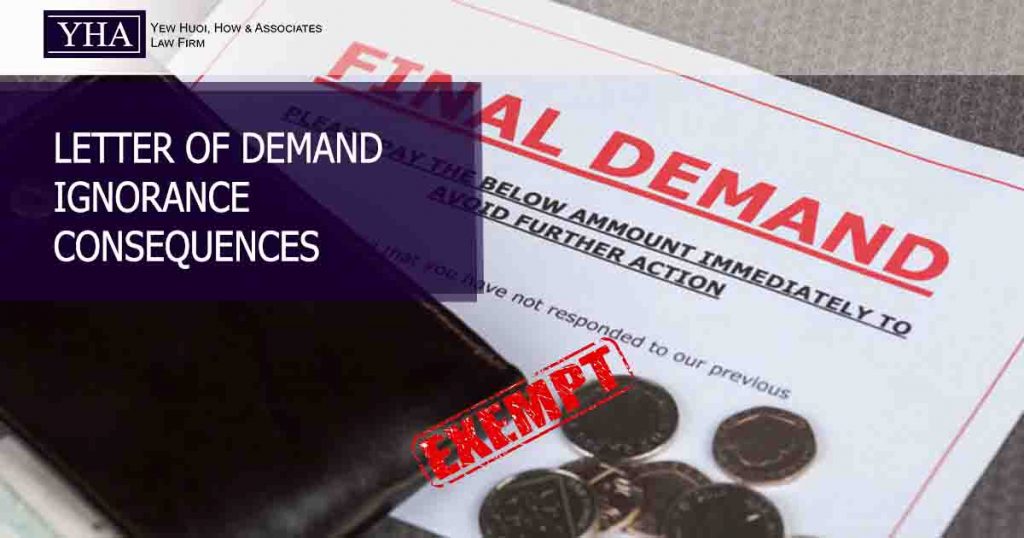My company entered into a Facility Agreement (“FA”) with the bank. I am the guarantor. Due to MCO, we defaulted the loan in the FA. The bank took legal action against my company and demanded the sum from me as guarantor. Can I ignore the letter of demand? What is the legal implication?
- Legally, not all demand notices must be replied to. Failure to respond does not tantamount to an admission.
- HOWEVER, failure to response relates to the issue of conduct of a person. The conduct of a person is relevant to how the court value a person’s evidence in court.
- Therefore, you should not ignore a letter of demand. A valid defence (if any) will be weak in evidence for failure to reply to a letter of demand.
What if I did not sign the guarantee to the FA as a guarantor and my signature was forged?
- If your signature is forged, you should immediately reply and state it is forged.
- You should also lodge a police report for forgery.
- Failure to do any of the above will weaken your defence of forgery in evidence.
Why is there such a problem in evidence since the law does not require demand notices to be replied to?
- The evidentiary presumption arises from the following common-sense approach.
- This is because under an ordinary course of business, if one man of business states in a letter to another that he has agreed to do certain things, the person who receives that letter must answer it if he means to dispute the fact that he did not agree.
- This is an ordinary response presumed in commercial cases.
- Similarly, if your signature is forged, a police report should be lodged.
- Failure to do so will weaken your case in evidence. Estoppel will set in. Your defence will be perceived as an afterthought.
What should I do when I receive a letter of demand?
- Check the timeframe given to you to reply to the demand.
- Consult a lawyer as soon as possible.
- Instruct your lawyer to immediately reply to the demand.
- State your defence clearly and as early as possible.
- If there is a defence of fraud and forgery, immediately lodge a police report so that an investigation can be carried out.
- Send the documents alleged to be forged for examination by an expert.
Case in point: Small Medium Enterprise Development Bank Malaysia v Lim Woon Katt [2016] 9 CLJ 73

